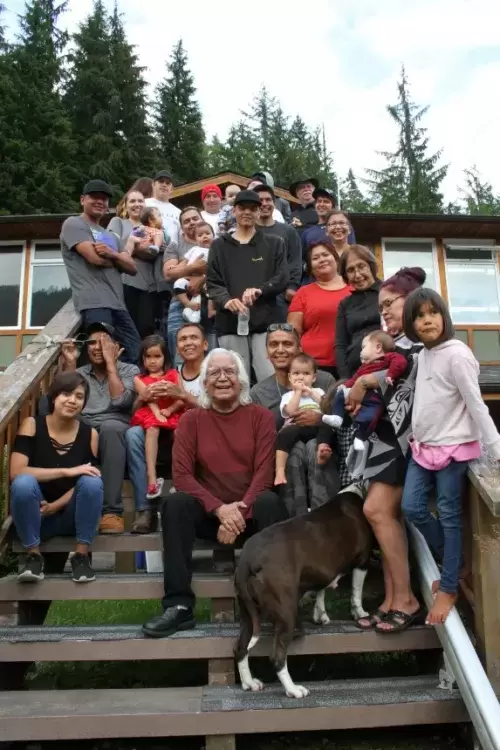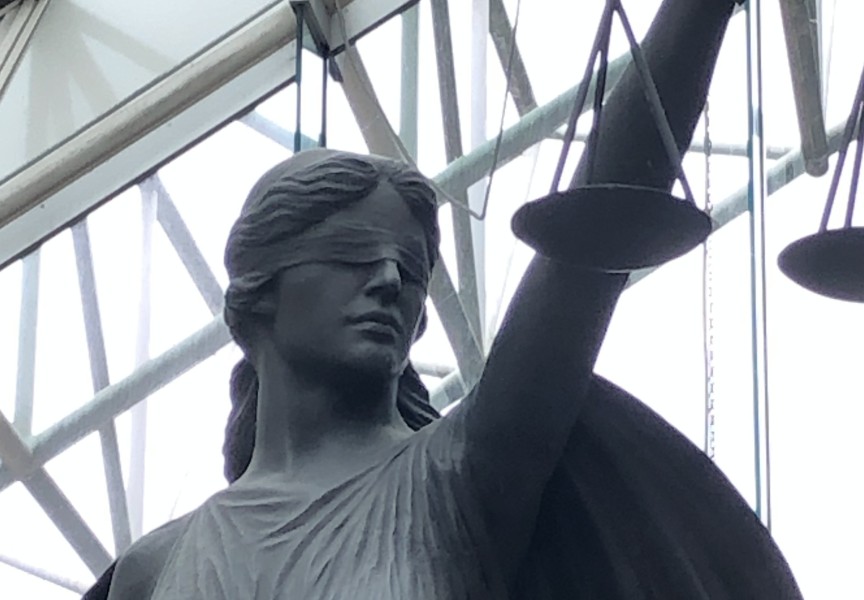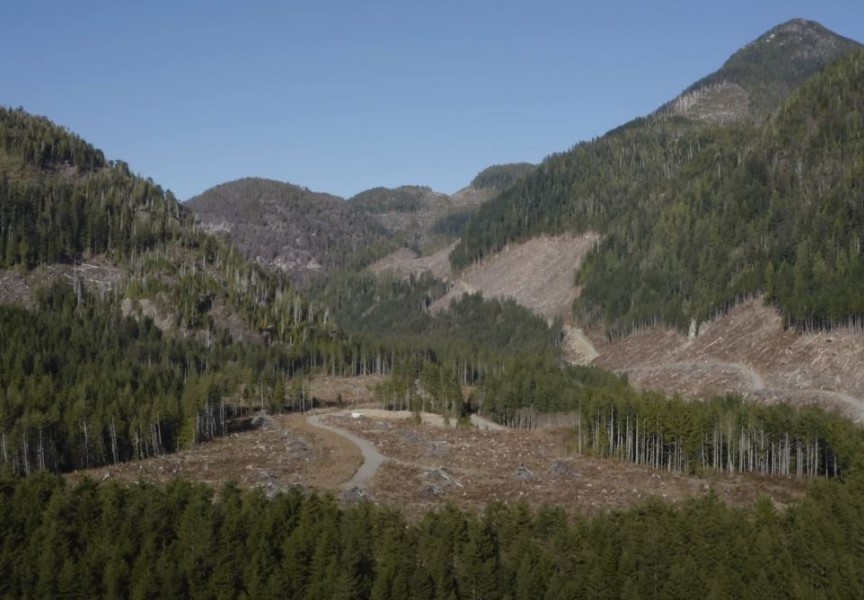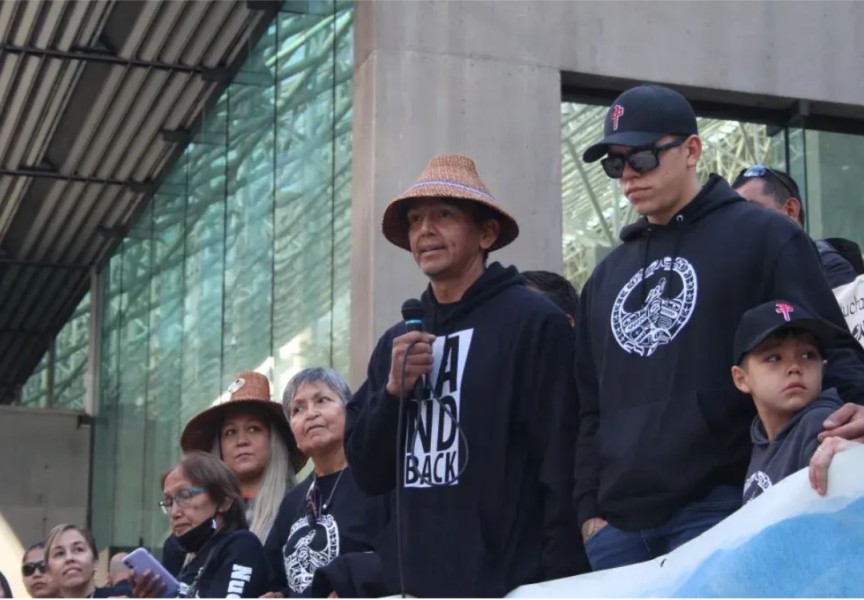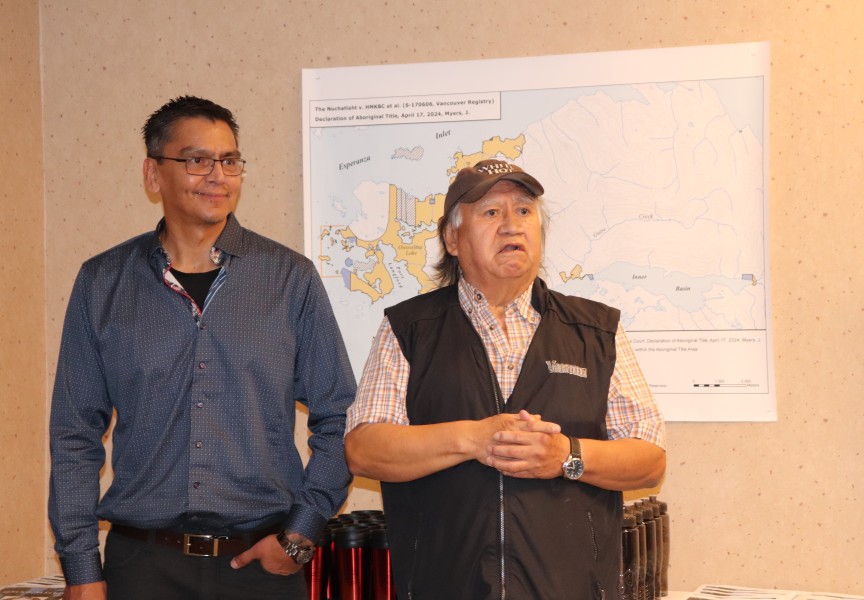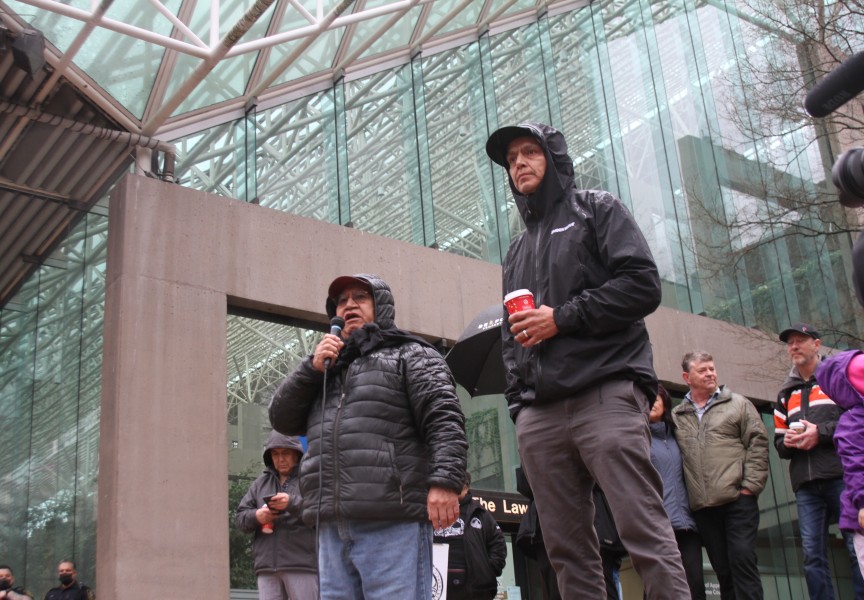As the Declaration of the Rights of First Peoples Act progresses through the legislature, a small Vancouver Island First Nation fighting for territorial recognition is calling on the province to show its reconciliatory stance in the courtroom.
The Nuchatlaht First Nation is preparing for a B.C. Supreme Court trial that would test its territorial right to approximately 20,000 hectares on the north section of Nootka Island. Western Forest Products currently holds the provincially recognized forestry tenure to this area off Vancouver Island’s northwest coast, but it’s also within the Nuchalaht’s traditional territory. The 164-member First Nation seeks the court’s official recognition of their territory and an injunction to halt WFP’s logging in the remote area.
The Nuchatlaht’s application was heard over five days in court Oct. 7-11, but now the province has made a submission for the upcoming trial to be adjourned. If approved, this would mean the court would drop the trial, which is expected to take place September 2020 in Vancouver.
On Nov. 5 Nuchatlaht Tyee Ha’wilth Jordan Michael brought the matter to David Eby, B.C.’s Attorney General. In a signed letter Michael cites a component to Bill 41, legislation that is currently being passed through the provincial legislature in Victoria, which “put the honourable conduct of litigation at issue.”
If passed, Bill 41 would make B.C. Canada’s first province to pass into law the United Nations Declaration on the Rights of Indigenous Peoples. This declaration includes an article stating that “Indigenous peoples have the right to own, use, develop and control the lands, territories and resources that they possess by reason of traditional ownership or other traditional occupation or use, as well as those which they have otherwise acquired.”
“We are happy to face resistance to our assertion of rights based on principle, but we do not think the Crown is acting honourably when the main impediments to justice are caused by Crown lawyers unreasonably forcing great cost and delay upon us, for no principled reason,” wrote Michael.
“As this matter is before the courts, it would be inappropriate to comment,” responded the Ministry of Attorney General to questioning from the Ha-Shilth-Sa.
If the case goes to trial, its outcome hinges on how it can be proven that the Nuchatlaht exclusively occupied the northern part of Nootka Island since 1846, which is the date the British Crown asserted sovereignty over the area.
Part of the Nuchatlaht’s case for continual occupation is evidence that Michael is the direct descendent of a man who is documented to have met the American sea captain John Kendrick in Tahsis Inlet in 1789.
“The Nuchatlaht exists today and is the continuation of, and successor to, the Nuchatlaht in 1846,” reads the First Nation’s statement of claim, which was first filed to the B.C. Supreme Court nearly three years ago.
But the province argues in its court documents that northern Nootka Island’s “steep and densely forested upland areas, and steep, rocky, exposed shorelines” would have prevented continual and exclusive occupation.
“The Nuchatlaht, prior to and at the date of sovereignty and at all material times, was comprised of loosely affiliated, small, localized family groups, some of which were territorially displaced from areas outside of the claim area by other Indigenous peoples, and did not exclusively occupy the claim area,” reads the province’s statement of claim.
Meanwhile, Western Forest Products’ claim argues that its activities on Nootka Island are “in the public interest” and for “the economic development of British Columbia.”
If it goes to trial, the Nuchatlaht case is expected to lead the way for a more streamlined process for First Nations gaining Aboriginal title without spending hundreds of days in court. The case relies on criteria set out by the Tsilhqot’in decision that came after over 300 days in court, resulted in the Supreme Court of Canada declaring the Aboriginal title of a “semi-nomadic” group of First Nations over their territory in central B.C. Destined to guide the Nuchatlaht case, the Tsilhqot’in decision set out criteria for Aborginal title: exclusivity in an area, occupation of the region and the historical continuity of occupation.
Now the Nuchatlaht are looking for the province to respect their claim in accordance with the historic Supreme Court of Canada decision and the developing First Peoples Act.
“We expect the government to respond to that historic claim honourably, respectfully, and in the spirit of Tsilhqot’in and UNDRIP,” reads Michael’s letter. “Unfortunately, that is not happening. The Crown lawyers of B.C. continue to make our case far more expensive than it should be, using every possible tactic of procedural delay.”

